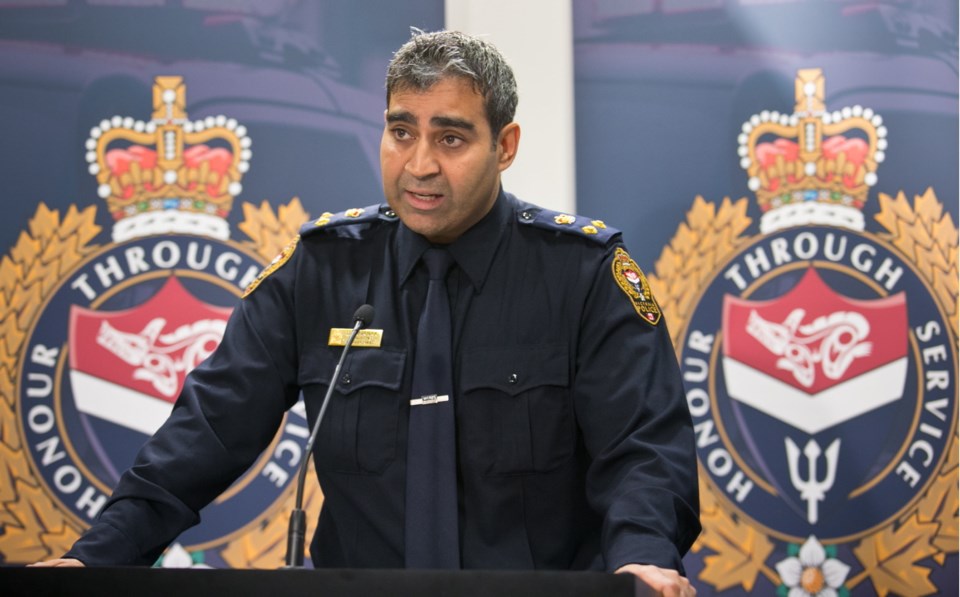The City of Victoria has agreed to pay $204,000 to fund two Victoria police officers assigned to an integrated mental-health team in the form of a two-year pilot project.
After a council meeting that stretched into the early hours of Friday morning, councillors voted 5-4 in favour of the project.
Councillors Marianne Alto, Ben Isitt, Jeremy Loveday and Geoff Young opposed the funding, saying the sensitive work of treating people with mental illness is best left to mental-health professionals.
Mayor Lisa Helps and councillors Chris Coleman, Charlayne Thornton-Joe, Margaret Lucas and Pam Madoff voted in support, backing Acting Chief Del Manak’s statements that the officers play an important role in preventing mental-health crises and criminal conduct.
Council will provide one year of funding through 2016 budget surplus funds and will approve funding for year two only after Victoria police provide a progress report. This allows the city to avoid a tax increase or having to take the funds from new assessed revenue.
The Township of Esquimalt is considering whether to approve the remaining $36,000, its portion of the $240,000 requested by Victoria police.
Victoria council asked that police work with downtown service providers and people struggling with mental-health issues, addiction and homelessness to develop the criteria to assess the project.
“The people who are most affected will be developing the valuation criteria,” Helps said. “So we’ll measure it at the end of the year based on the success and impact on the people that it’s meant to serve.”
The officers would help the region’s four Assertive Community Treatment teams, integrated units in which nurses, psychiatrists, outreach workers, social workers and police officers manage people with mental illness and addiction living in the community. The four ACT teams serve more than 320 clients in Victoria and Esquimalt.
Const. Sue Hamilton has been assigned to the teams since 2014. She will be joined by Const. Todd Mason, a member of the teams since July as part of a six-month pilot project by the department, and another officer.
In an interview with the Times Colonist this week, Hamilton and Mason described the rapport they are able to build with ACT clients by working in plainclothes and getting to know people’s stories.
However, several speakers at the council meeting made personal pleas for council to deny the funding.
Kat Palmateer, a social work student at the University of Victoria, spent years on the street and struggled with mental illness.
Palmateer said having police officers respond to a mental-health crisis immediately escalates the situation, describing it as “terrifying.”
“This funding sends the message that people with mental illness are dangerous and therefore police need to attend as outreach workers,” Palmateer said.
Orillia Gail worried that having police work alongside social workers and mental-health nurses could deter people from asking for help.
“Your approval of this proposal will further embed police into mental-health work,” Gail said. She urged councillors to look for evidence-based community supports.
Speaker Ashley Mollison said there is an “extreme lack of mental-health supports and structural supports such as housing, and the answer to this is not police.”
On Friday, Manak said council’s decision recognizes that police are on the front lines and are already interacting with people with mental illness on a regular basis.
“Putting the resources to stabilizing people and managing them before they get to a crisis, preventing police from responding in the first place is where we need to put our resources and our efforts.”



